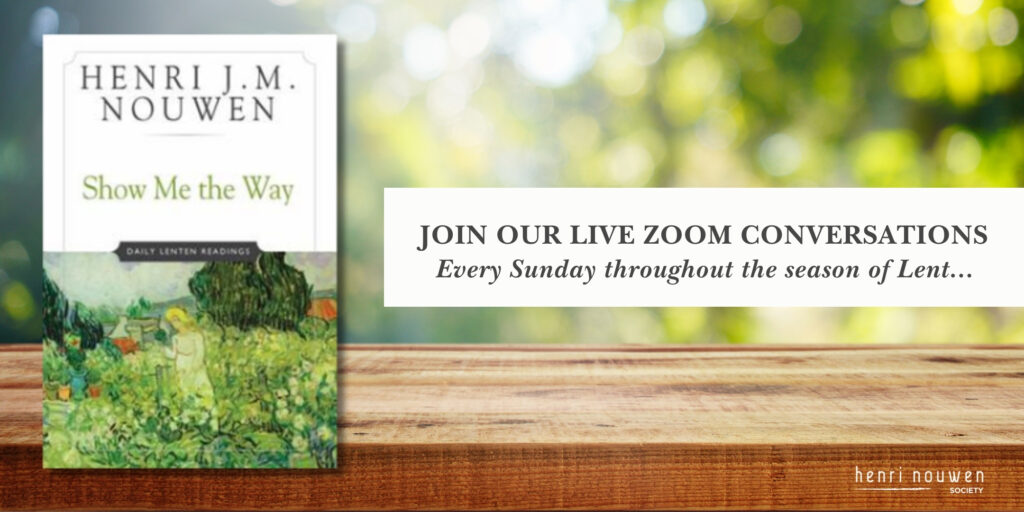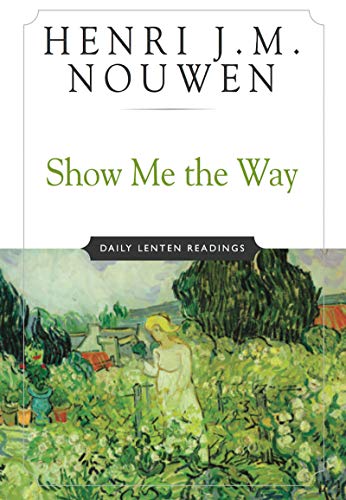Reading: Letter VI—Jesus: The Hidden God (p. 67 to p. 78)
Whereas the way of the world is to insist on publicity, celebrity, popularity, and getting maximum exposure. God prefers to work in secret. (p. 68) . . .
It is very important for you to realize that perhaps the greater
part of God’s work in this world may go unnoticed. (p. 72)
In an online Philosophy of Religion textbook we read, “In Western (Christian) thought, God is traditionally described as a being that possesses at least three necessary properties: omniscience (all-knowing), omnipotence (all-powerful), and omnibenevolence (supremely good). In other words, God knows everything, has the power to do anything, and is perfectly good.” While this is true, for me, if this was the whole story we would be describing a distant and impersonal God. In his letters to Marc, Henri Nouwen has described God using more human terms: compassionate, descending, loving, and, this week, hidden. Why the difference? Henri is describing the characteristics of Jesus, the Son of God—the Divine person with two natures: fully human and fully divine. God entered into his creation in the person of Jesus, and it is through Jesus that we can enter into relationship with God. Henri write, “Jesus is the hidden God. He became a human being among a small, oppressed people, under very difficult circumstances. . . . There was nothing spectacular about Jesus’ life—far from it!” (p. 71)
This week we reflect on the hiddenness of God and how we can live that in our world today.
- Marthe Robin is one of the most impressive examples of God’s hidden presence in our world. . . . . As the years passed her suffering grew deeper. In the beginning she suffered with Jesus, but little by little she became the suffering Jesus. (p. 68-69)
Were you aware of Marthe Robin before reading this chapter? (I was not.) What did you learn from her story? Where are the places / spaces in you life where experience “a peace which the world cannot give; a joy which doesn’t conflict suffering”? (p.70) Please share. - I’m constantly struck by the fact that wherever the gospel of Jesus bears fruit, we come across this hiddenness. The great Christians throughout history have always been lowly people who sought to be hidden. (p. 72) Henri then cites St. Francis of Assisi and others as examples.
Are there “lowly people who sought to be hidden” in your life or that have lived a fruitful gospel life? Share their story and why it touched you. - The heart is at the center of our being human. . . . The mystery of the spiritual life is that Jesus desires to meet us in the seclusion of our own heart, to make his love known to us there, to free us from our fears, and to make our own deepest self known to us.” (p.74)
How do you respond to Henri’s understanding of our heart as our center. What changes would you need to make to to discipline your heart and live a spiritual life? What would that mean for your relationship to Jesus and to others? - (T)he Eucharist is preeminently the sacrament of God’s hiddenness. (p. 76)
As he has in other letters, Henri writes to Marc based on his Catholic understanding of the Eucharist. How do Henri’s insights help you gain a better understanding of God’s hiddenness or the Eucharist. Please share.
We look forward to another week of excellent discussion. You are encouraged to share your reflections on one or more of the excerpts above or anything that touched your heart i the reading this week.
May the Lord give you peace.
Ray


